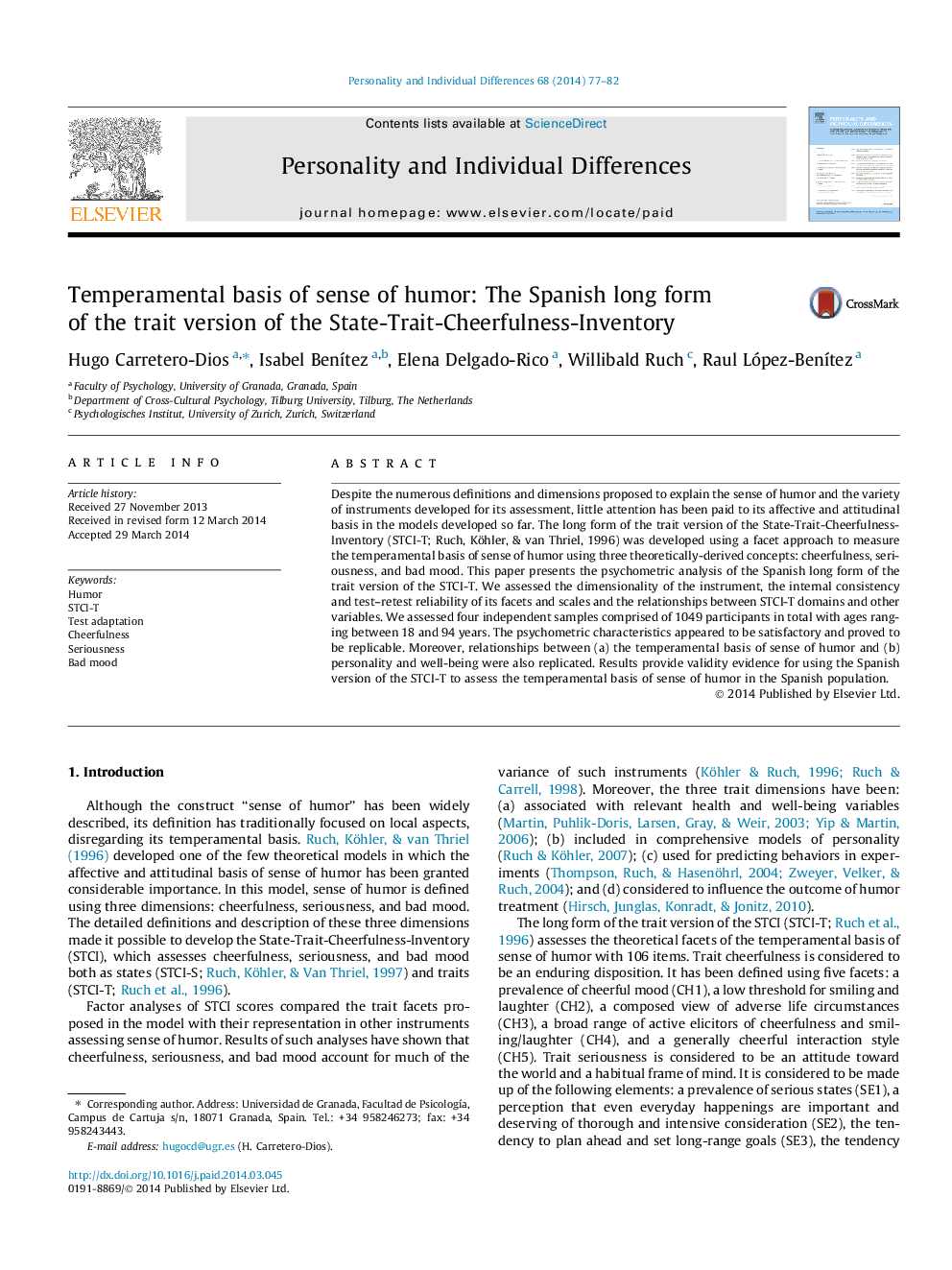| Article ID | Journal | Published Year | Pages | File Type |
|---|---|---|---|---|
| 7252221 | Personality and Individual Differences | 2014 | 6 Pages |
Abstract
Despite the numerous definitions and dimensions proposed to explain the sense of humor and the variety of instruments developed for its assessment, little attention has been paid to its affective and attitudinal basis in the models developed so far. The long form of the trait version of the State-Trait-Cheerfulness-Inventory (STCI-T; Ruch, Köhler, & van Thriel, 1996) was developed using a facet approach to measure the temperamental basis of sense of humor using three theoretically-derived concepts: cheerfulness, seriousness, and bad mood. This paper presents the psychometric analysis of the Spanish long form of the trait version of the STCI-T. We assessed the dimensionality of the instrument, the internal consistency and test-retest reliability of its facets and scales and the relationships between STCI-T domains and other variables. We assessed four independent samples comprised of 1049 participants in total with ages ranging between 18 and 94Â years. The psychometric characteristics appeared to be satisfactory and proved to be replicable. Moreover, relationships between (a) the temperamental basis of sense of humor and (b) personality and well-being were also replicated. Results provide validity evidence for using the Spanish version of the STCI-T to assess the temperamental basis of sense of humor in the Spanish population.
Related Topics
Life Sciences
Neuroscience
Behavioral Neuroscience
Authors
Hugo Carretero-Dios, Isabel BenÃtez, Elena Delgado-Rico, Willibald Ruch, Raul López-BenÃtez,
